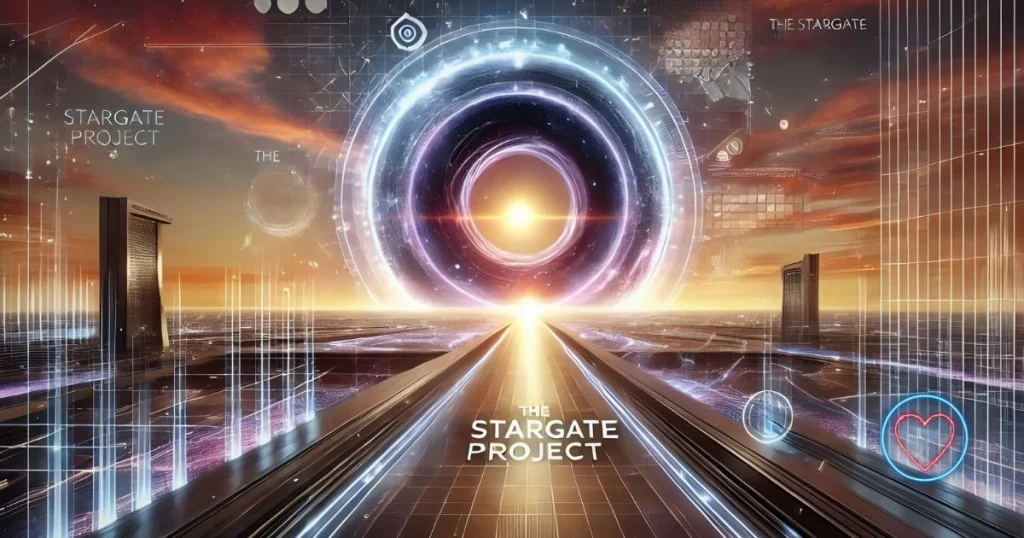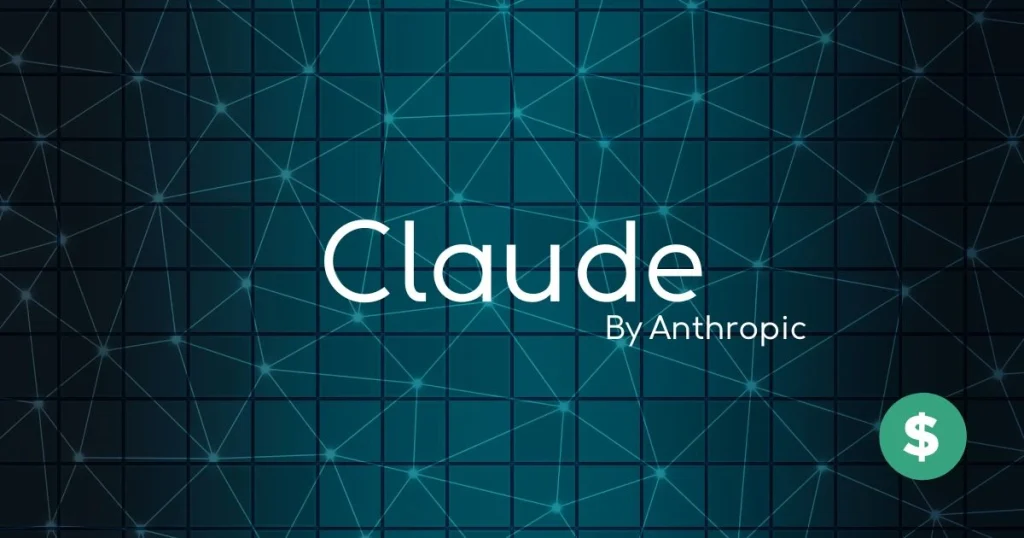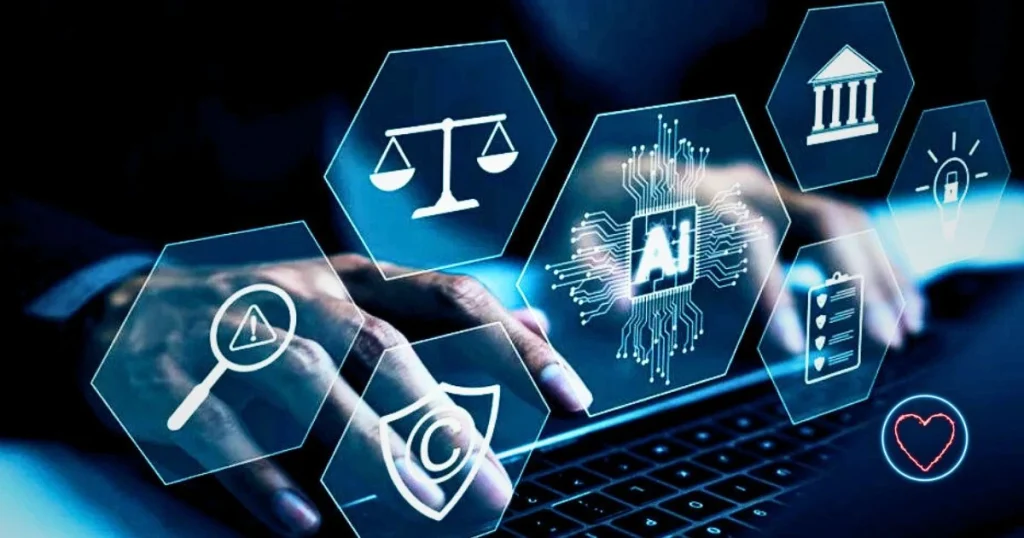Introduction
In January 2025, the United States introduced Project Stargate, a revolutionary $500 billion initiative designed to reshape the future of artificial intelligence (AI) infrastructure. Spearheaded by technology giants like OpenAI, SoftBank, Oracle, and MGX, this project aims to enhance the country’s competitive edge in AI research and development. It will provide the computational power necessary for advancing AI capabilities while securing the U.S.’s leadership in this rapidly growing field.
Origins and Vision of Project Stargate
The project was announced on January 21, 2025, during a press conference at the White House. President Donald Trump, OpenAI CEO Sam Altman, SoftBank CEO Masayoshi Son, and Oracle Co-founder Larry Ellison gathered to reveal the monumental initiative. Inspired by the 1994 sci-fi film Stargate, the project’s name symbolizes a gateway to new technological horizons.
Project Stargate’s goal is to establish a vast network of data centers that will power sophisticated AI systems, making the U.S. the dominant force in AI research. These data centers will provide unparalleled computational resources, allowing the country to maintain its leadership in global technological advancements.
The Structure and Key Stakeholders
The project is managed by Stargate LLC, a joint venture with stakeholders like OpenAI (40%), SoftBank (40%), and Oracle and MGX (20%). The leadership structure places Masayoshi Son as chairman, while OpenAI handles day-to-day operations. Microsoft, NVIDIA, and Arm also join as strategic partners, contributing vital resources such as AI software, hardware, and chips to the initiative.
Massive Investment and Financial Planning
With an initial investment of $100 billion, the project plans to reach $500 billion by 2029. SoftBank and OpenAI contributed $19 billion each, while Oracle and MGX committed $7 billion apiece. To meet its financial goals, the project will rely on both equity and debt financing. Notably, SoftBank secured loans from Mizuho Bank and other institutions.
Though critics have raised concerns about debt, the massive funding underscores the project’s immense potential. The financial backing reflects the belief that Project Stargate will play a crucial role in shaping the future of AI technology.
Infrastructure Development: A New AI Backbone
The backbone of Project Stargate consists of 10 cutting-edge data centers in Abilene, Texas. These facilities will house specialized AI hardware such as GPUs, AI accelerators, and advanced semiconductors. OpenAI plans to use these centers to conduct large-scale research and develop sophisticated AI models.
Construction of these centers began in early 2025, with a target completion date by the end of the year. This phase will create more than 100,000 jobs in construction, engineering, and energy infrastructure, providing significant economic benefits to the region.
Strategic Goals: Strengthening National AI Leadership
Project Stargate aims to enhance U.S. leadership in AI development by reducing reliance on foreign semiconductor manufacturing, particularly from Taiwan. This focus aligns with broader national security concerns and strategic goals, ensuring the U.S. maintains its competitive edge in the AI race.
By establishing domestic AI infrastructure, Project Stargate seeks to build self-sufficiency, eliminating vulnerabilities in the supply chain and making the U.S. less dependent on geopolitical rivals. The project will help solidify the country’s role as the world’s AI powerhouse, especially in light of growing competition from China.
Global Expansion: International Collaborations
AI development is inherently global, and Project Stargate recognizes this reality. OpenAI has already initiated discussions with several countries, including France, Germany, and the United Kingdom, to expand the initiative internationally. These partnerships will help spread AI research while fostering ethical AI development based on democratic values.
Collaborating with allies worldwide will also counter the rise of authoritarian models, such as China’s AI strategies. By working with like-minded nations, the U.S. can promote open, transparent, and human-centric AI technologies.
Challenges and Criticisms
Despite its promise, Project Stargate faces several challenges that could hinder its success.
Financial Risks
The project heavily depends on debt financing, and critics are concerned that the massive financial commitments might be unsustainable. Elon Musk, CEO of xAI, has raised doubts about the project’s funding strategy and long-term viability. The reliance on borrowed funds may strain the project’s resources if returns fall short of expectations.
Geopolitical Risks
Another challenge lies in the supply chain for critical AI hardware. Taiwan is a key supplier of the semiconductors required for AI research. The ongoing geopolitical tensions in the region could disrupt access to these chips, potentially delaying or jeopardizing the project.
Looking Ahead: The Potential of Project Stargate
If successful, Project Stargate could dramatically accelerate the development of AI technologies. It would position the U.S. at the forefront of AI innovation, making major strides in fields such as healthcare, autonomous vehicles, robotics, and finance.
The initiative’s sheer scale could create vast new industries and contribute to job creation, bolstering the economy. Additionally, the project would provide substantial benefits in national security, ensuring the U.S. maintains technological superiority.
Conclusion: A New Era of AI Development
In conclusion, Project Stargate represents a bold vision for the future of AI infrastructure. Its $500 billion investment is a testament to the U.S.’s commitment to leading the global AI race. While challenges such as financial risks and geopolitical concerns remain, the project offers significant potential to reshape AI technology.
Project Stargate stands as one of the most ambitious AI ventures in history. If successful, it will catalyze the next era of AI research and technological innovation, securing the U.S. as the dominant global player in artificial intelligence. Its success will shape the future of industries, economies, and national security on a global scale.











